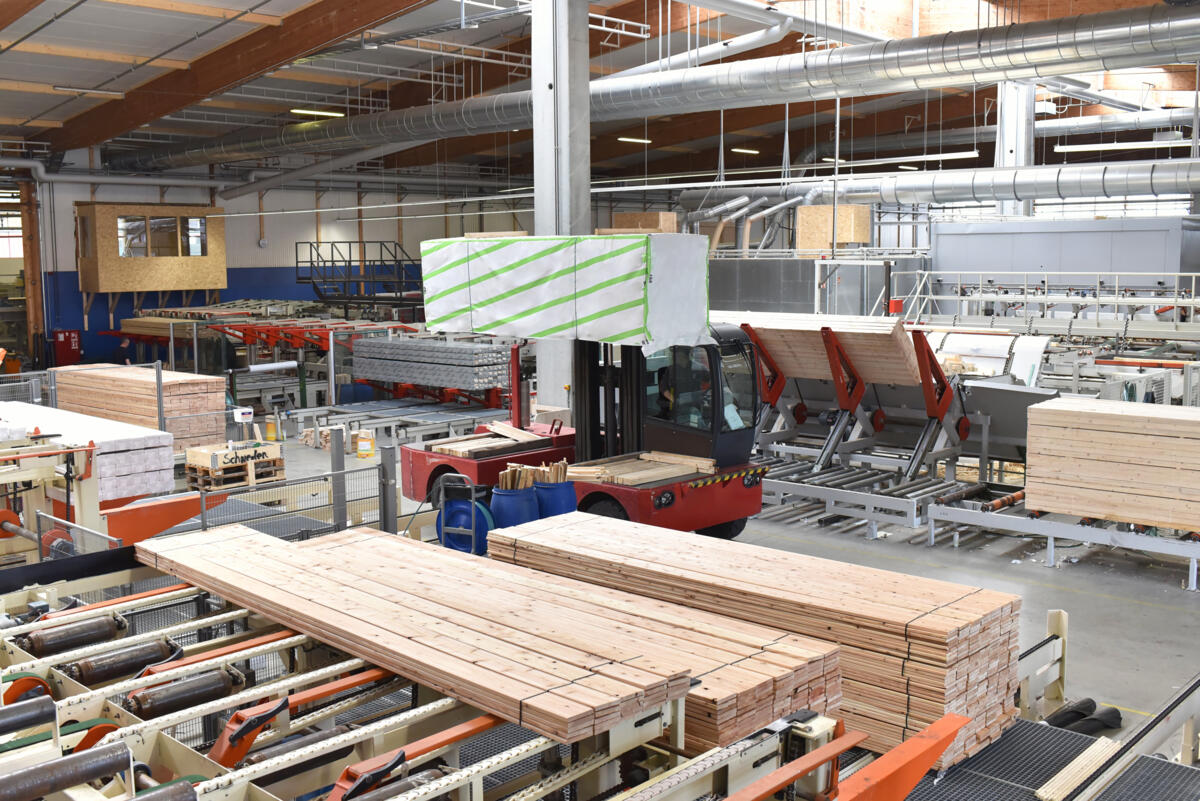EU sustainability regulations & practices: opportunities in the European Wood Sector
Wood processing companies in the SIPPO partner countries are seizing the opportunities and potentials related to current market challenges. With the support of local Business Support Organizations (BSOs), they focus on regulatory compliance, certification and sustainable practices to position themselves as crucial partners for European importers.

Current Trends: Sustainability & eco-friendly practices
The European wood industry is witnessing several prominent trends that are shaping its operations and strategies. Among these, sustainability and eco-friendly practices are at the forefront. There is an increasing shift towards the use of certified wood and the integration of sustainable forest management practices. Additionally, the demand for wood and wood products is rising due to the growing popularity of wooden structures in architecture, driven by their aesthetic appeal and carbon-sequestering capabilities.
Automation & digitalization of supply chain
Another significant trend is the digitalization of the supply chain, which aims to improve the traceability and efficiency of wood sourcing. This includes the use of blockchain technology to ensure the integrity of the supply chain from forest to final product.
Edin Dadic, member of the SIPPO Advisory Board, adds: “Investing in automation has been a trend for some time. Since the inflation and the rise in prices as well as salaries in the Balkans, exporting companies have been under pressure to increase productivity. Automation is one of the trends where our local Business Support Organisations (BSOs) assist exporters with know-how transfer.”
Edin is also the CEO of Daccomet AG, a Swiss Furniture company with production facilities in both Serbia and Bosnia-Herzegovina. He brings a thorough understanding of the Technical Wood sector and of the challenges that exporters in the SIPPO partner countries are facing, as well as of the opportunities arising from these developments.
Wood sourcing potential in the Balkans
Edin Dadic explains: “The Balkans are becoming an increasingly attractive source for the European wood industry due to its abundant forest resources and relatively low exploitation levels compared to Western Europe”. Countries like Serbia, Bosnia and Herzegovina, Romania, and Bulgaria are seeing increased investment from European wood companies seeking to leverage the region's potential.
Challenges: wood prices & environmental concerns
The Wood sector also faces numerous challenges. The fluctuation in wood prices, partly due to tariffs and trade disputes, significantly impacts sourcing decisions of European importers. Environmental concerns, such as deforestation and biodiversity loss, also pose serious challenges, prompting the industry to reconsider its sourcing strategies to include more sustainable practices.
The availability of raw materials is another critical challenge. Climate change effects, such as wildfires and pests, are affecting forest health across Europe, leading to a decrease in wood supply in certain regions.
Impacts on Sourcing Decisions
In response to these trends and challenges, there is a noticeable shift in sourcing strategies within the European wood industry. Traditionally, European countries have relied heavily on domestic sources and imports from North America and parts of Asia. Edin Dadic observes: “However, due to the challenges mentioned, there is a growing interest from buyers in diversifying supply sources to ensure stability and sustainability.”
Strict quality regulations
This is where the SIPPO Programme steps in and connects European Importer Networks with Business Support Organisations (BSOs) in the SIPPO target markets for Wood, which include Bosnia and Herzegovina, Serbia, Vietnam and Indonesia – countries with relatively low labour costs and established wood processing infrastructures. The BSOs make sure to bring their exporters up to speed on trends and developments and help to educate and enable them to grow and expand their business.
EU Regulations and voluntary standards
Some of these developments include regulations as well as voluntary standards. The European Union regulations play a crucial role in shaping the sourcing decisions of the wood industry. The EU Timber Regulation (EUTR), which prohibits the sale of illegally harvested timber and timber products within the EU, has forced companies to adopt more stringent sourcing policies. Compliance with this regulation involves rigorous due diligence processes to prove the legality of the sourced wood.
Furthermore, voluntary certification standards such as the Forest Stewardship Council (FSC) and the Programme for the Endorsement of Forest Certification (PEFC) are increasingly influential. These certifications not only help companies ensure compliance with EU regulations but also serve as a marketing tool, as more consumers demand products made from responsibly sourced wood.
Seizing opportunities from trends and challenges
“Exporting companies in the Balkans are recognizing these challenges and are focusing on enhancing their forestry laws and management practices to comply with EU regulations. They are investing in certification to further build trust with European buyers”, Edin Dadic adds. “The adoption of these standards also presents a strategic move to differentiate their products in a competitive market.”
In addition, companies are modernizing their wood processing to increase efficiency and quality. This includes investing in new technologies and training programs to enhance productivity and ensure the wood products meet the high standards required by the European market.
In Vietnam and Indonesia, wood processing are recognizing the importance of sustainable practices and are increasingly investing in responsible sourcing. The push towards achieving FSC and PEFC certifications is robust, reflecting a commitment to environmental sustainability that aligns with European consumer expectations. Companies are actively seizing opportunities related to the challenges in the European wood sector.
Monika Geissberger, Sector Lead Technical Wood and Value-added Textile at SIPPO, concludes: “BSOs play a crucial role in supporting them in their efforts in modernization, legal reform, and certification adherence. By focusing on regulatory compliance, certification, and sustainable practices, these regions are not only enhancing their domestic wood industries but are also positioning themselves as crucial players in the international wood market.”
More about SIPPO’s services
Read more about sustainability



 North Macedonia
North Macedonia











